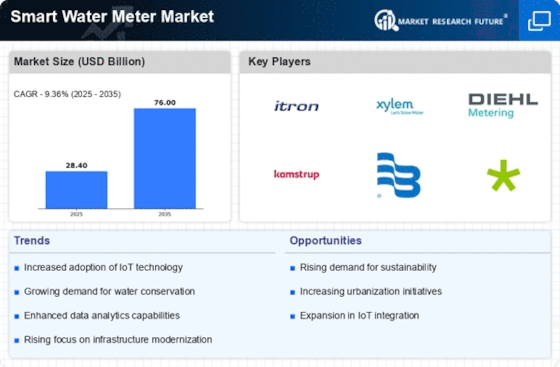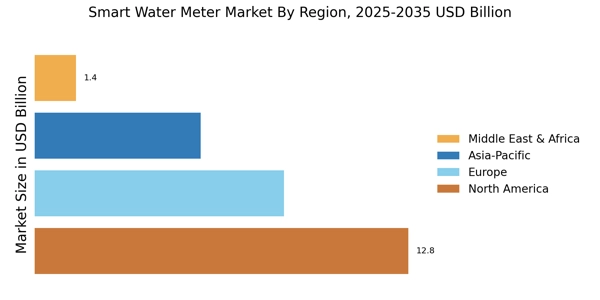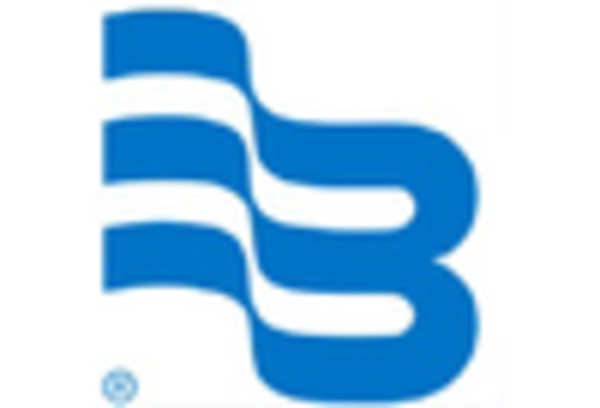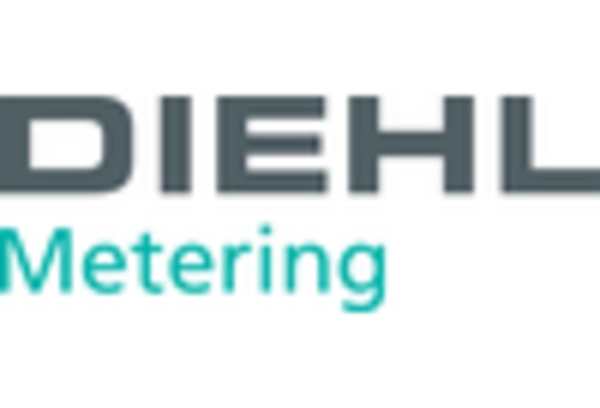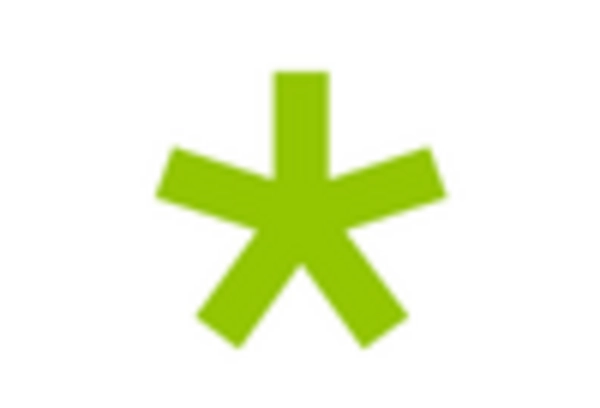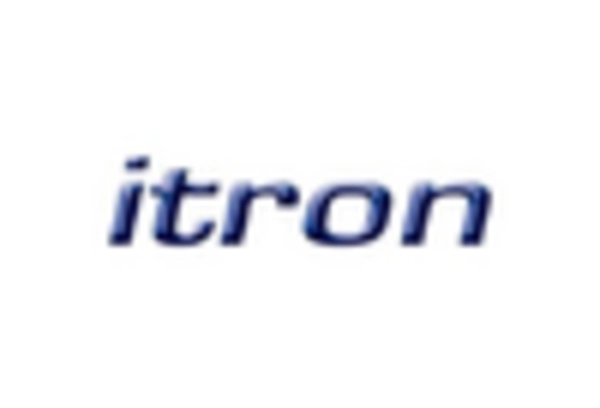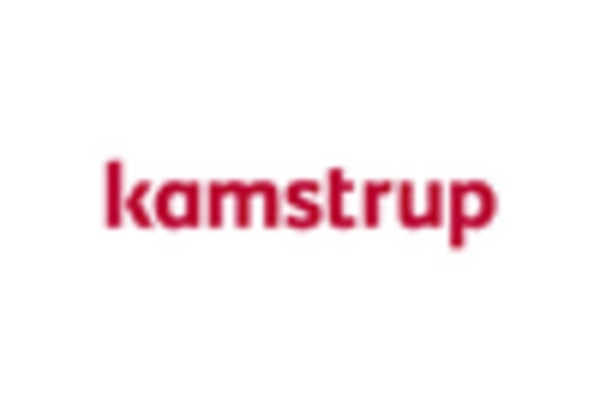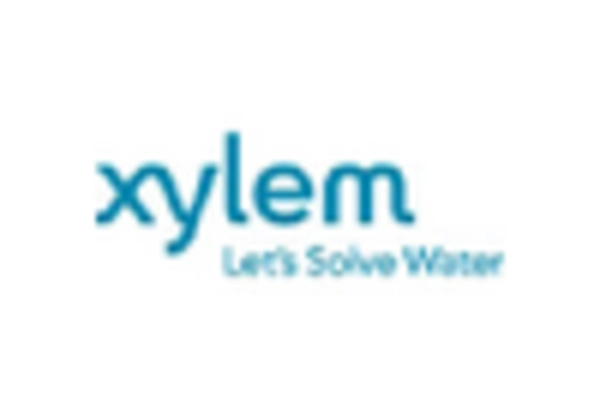Rising Water Scarcity Concerns
The Smart Water Meter Market is significantly influenced by rising concerns over water scarcity. As populations grow and climate change impacts water availability, the need for efficient water management becomes paramount. Smart water meters provide utilities with the tools necessary to monitor usage patterns and detect leaks, thereby conserving precious water resources. Recent studies indicate that regions implementing smart metering solutions have seen a decrease in water loss by up to 30%. This growing awareness of water scarcity issues is likely to drive the adoption of smart water meters, as stakeholders seek effective solutions to manage their water resources more sustainably.
Sustainability Initiatives Driving Demand
Sustainability initiatives are becoming a cornerstone of the Smart Water Meter Market. As environmental concerns rise, municipalities and water utilities are increasingly adopting smart metering solutions to promote water conservation. The implementation of smart water meters can lead to a reduction in water consumption by up to 15%, aligning with global sustainability goals. Furthermore, these initiatives often receive support from government programs aimed at promoting efficient water use. The growing emphasis on sustainable practices is likely to propel the demand for smart water meters, as stakeholders seek to minimize their environmental footprint while ensuring reliable water supply.
Consumer Awareness and Demand for Transparency
Consumer awareness regarding water usage and the demand for transparency are emerging as key drivers in the Smart Water Meter Market. As individuals become more conscious of their water consumption, they are increasingly seeking tools that provide insights into their usage patterns. Smart water meters offer detailed data that empowers consumers to make informed decisions about their water use. This trend is reflected in the rising number of households opting for smart metering solutions, which has been reported to increase by over 25% in recent years. The growing expectation for transparency in water billing and consumption is likely to further stimulate the Smart Water Meter Market.
Technological Advancements in Smart Water Meter Market
The Smart Water Meter Market is experiencing rapid technological advancements that enhance the efficiency and accuracy of water usage monitoring. Innovations such as IoT integration and real-time data analytics are becoming increasingly prevalent. These technologies allow utilities to optimize water distribution and reduce waste. According to recent data, the adoption of smart water meters has led to a reduction in non-revenue water by approximately 20-30%. This trend indicates a growing recognition of the need for advanced metering infrastructure, which is likely to drive market growth further. As utilities invest in these technologies, the Smart Water Meter Market is poised for significant expansion.
Regulatory Support for Smart Water Meter Implementation
Regulatory support plays a crucial role in the Smart Water Meter Market. Governments worldwide are establishing policies that encourage the adoption of smart metering technologies. For instance, mandates for water utilities to implement advanced metering infrastructure are becoming more common. This regulatory framework not only facilitates the transition to smart water meters but also ensures compliance with water conservation standards. As a result, the market is likely to witness increased investments from both public and private sectors, further driving the growth of the Smart Water Meter Market. The alignment of regulations with technological advancements creates a conducive environment for market expansion.


